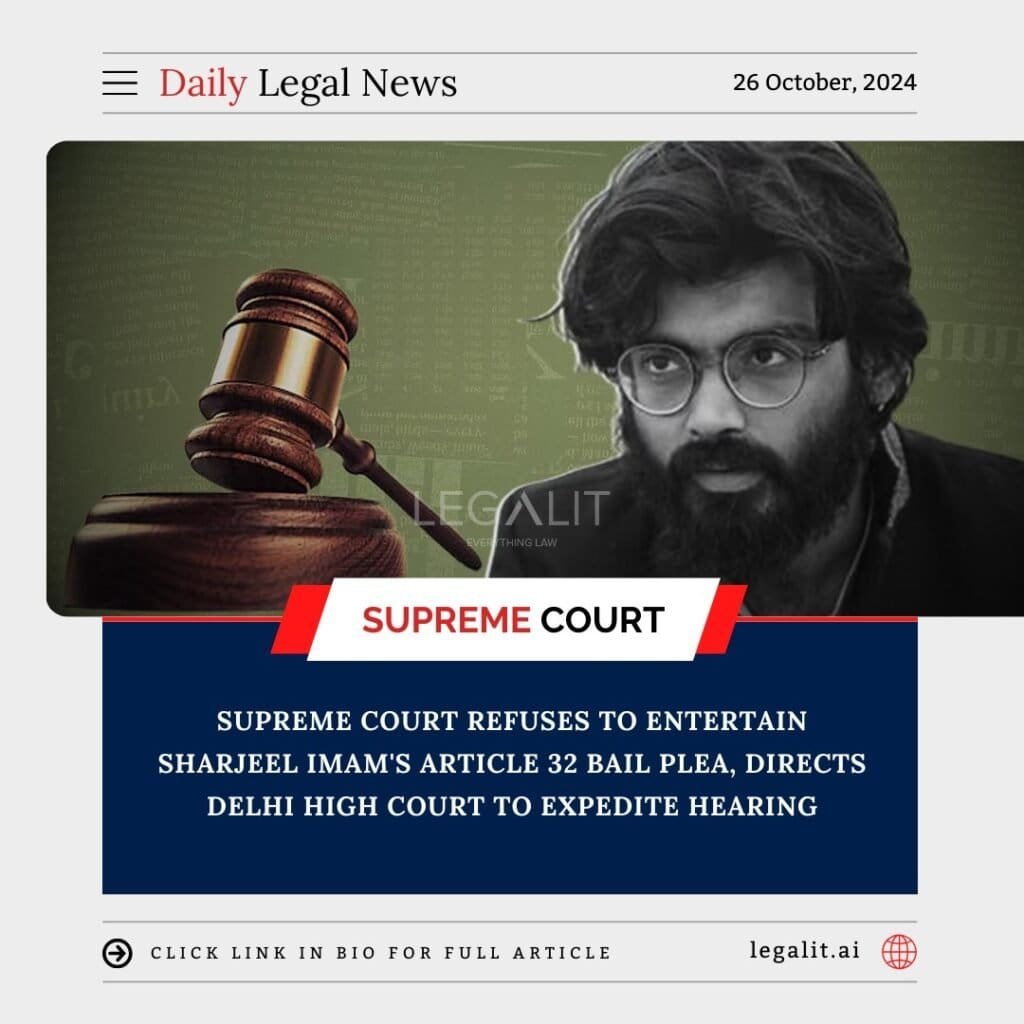
The Supreme Court has declined to entertain a bail plea filed under Article 32 by Sharjeel Imam, an activist and former JNU student, but has directed the Delhi High Court to expedite the hearing of his bail application. Sharjeel Imam has been in custody since his arrest in connection with the anti-CAA protests and the subsequent riots that erupted in Delhi. He was charged under various provisions, including sedition and offenses related to promoting enmity.
Background:
Sharjeel Imam was arrested in January 2020 for allegedly making inflammatory speeches during the anti-CAA protests, which were believed to have incited violence. The primary charge against him is sedition under Section 124A of the Indian Penal Code (IPC), among others. His speeches during the protest period were scrutinized for allegedly encouraging divisiveness and promoting enmity between communities.
Court’s Inquiry:
The bail plea was filed under Article 32 of the Constitution, which allows individuals to seek relief for the violation of their fundamental rights directly in the Supreme Court. However, the Supreme Court made it clear that such bail applications should generally be made in the High Courts unless there is a compelling reason to bypass this judicial hierarchy. Despite rejecting the Article 32 plea, the Supreme Court showed leniency by urging the Delhi High Court to hear the matter expeditiously.
Existing Measures:
Imam’s legal team had argued that he had been in custody for a prolonged period without trial, asserting that this violated his right to personal liberty under Article 21 of the Constitution. The Delhi High Court will now have to weigh these arguments, along with the charges against Imam, while deciding on his bail application. His legal battle also highlights ongoing debates around the sedition law in India, which has faced calls for reform and scrutiny.
Conclusion:
While the Supreme Court has chosen not to interfere directly in Sharjeel Imam’s bail plea under Article 32, the directive to expedite the case indicates the court’s recognition of the need for swift legal proceedings in prolonged pretrial detentions. This case continues to be emblematic of broader legal and political issues surrounding sedition and free speech in India.